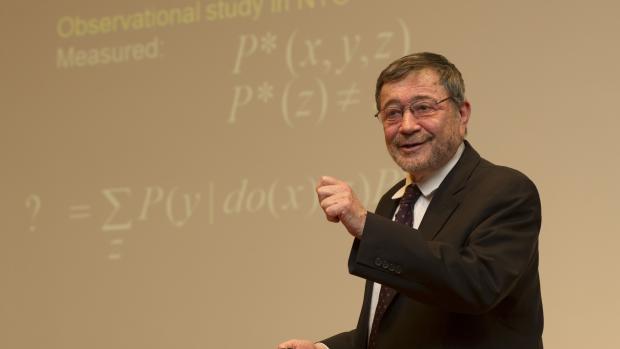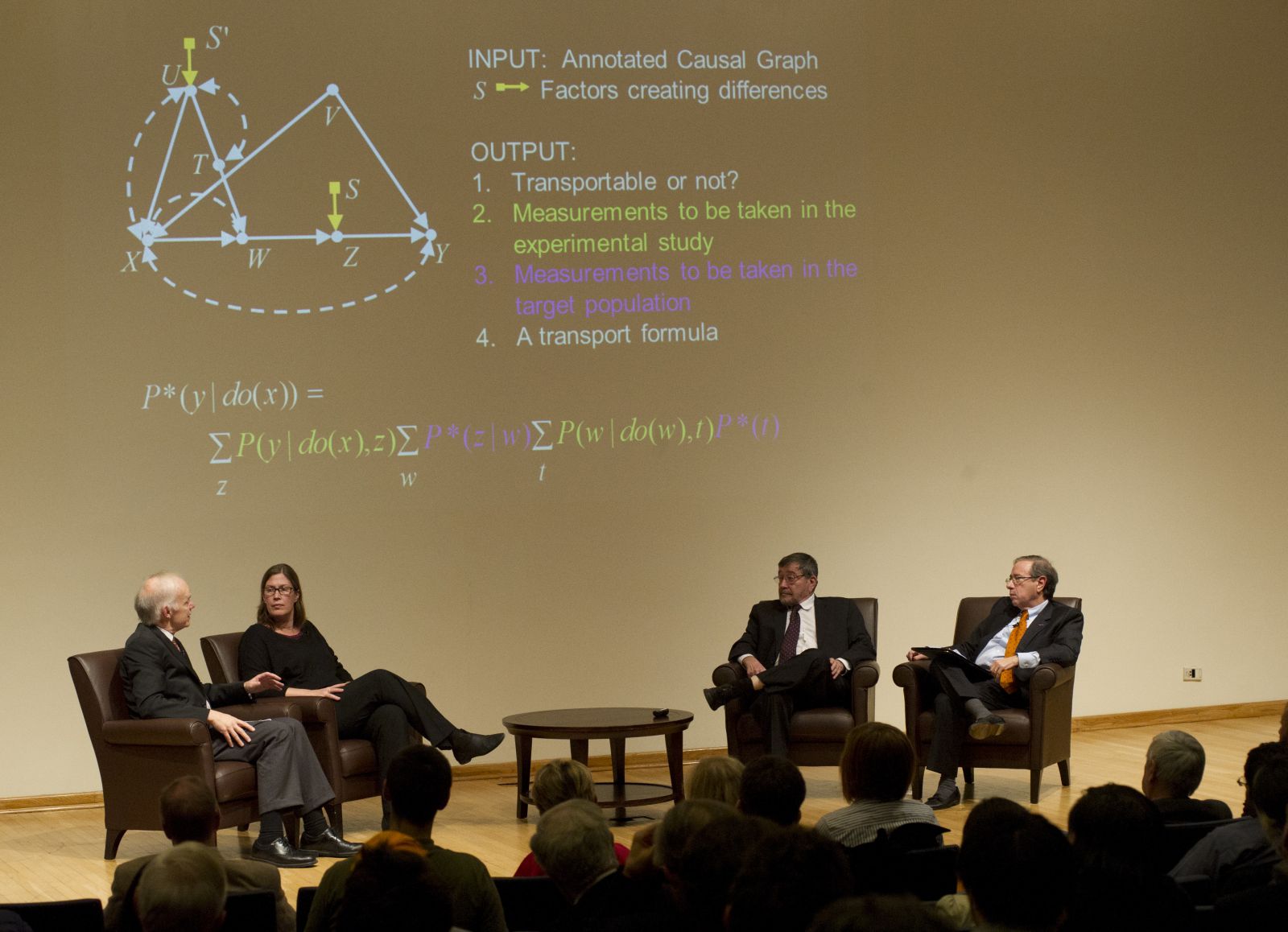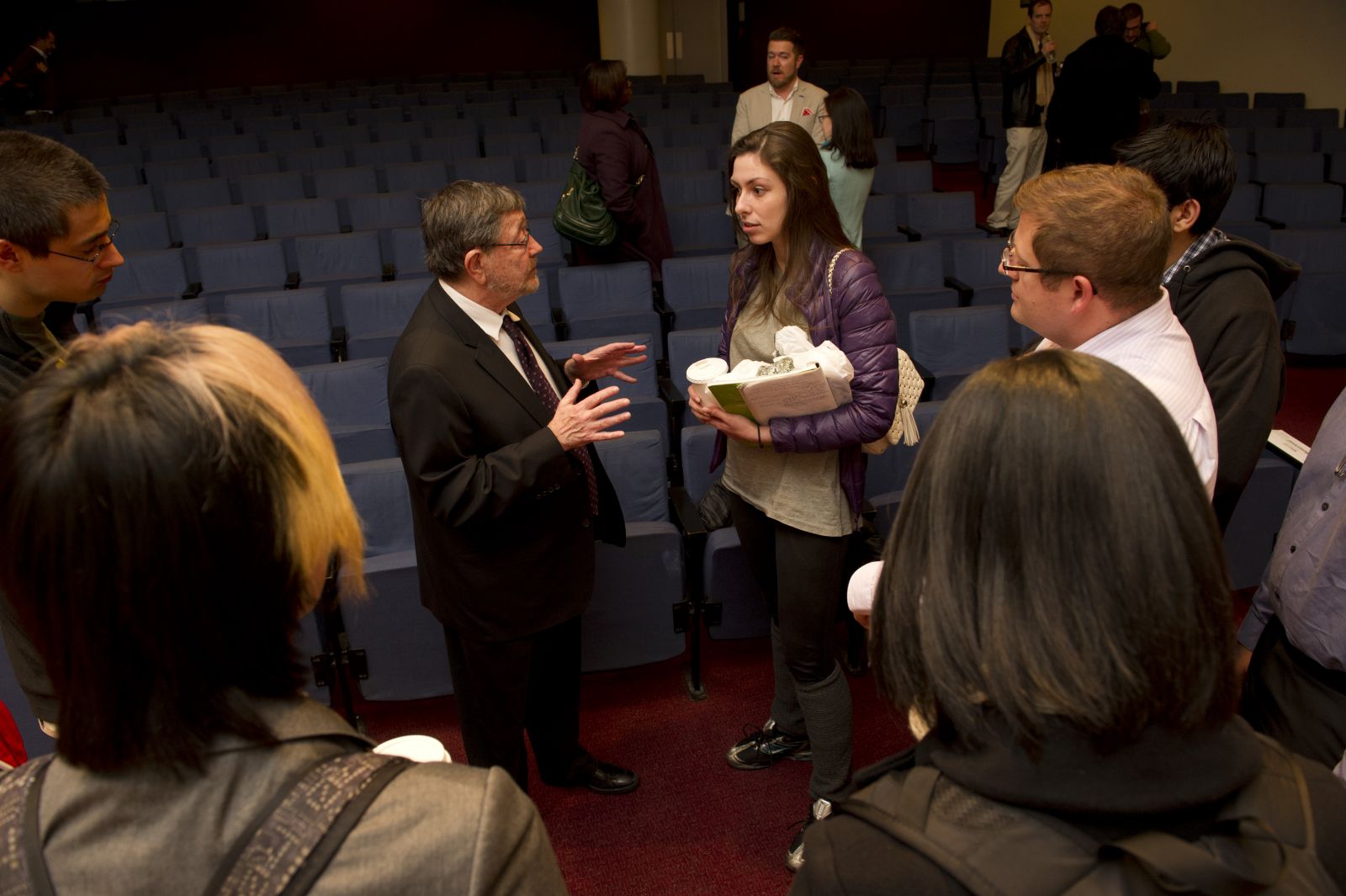Computer Scientist and Philosopher Judea Pearl Delivers 15th Annual Lynford Lecture on Science of Cause and Effect

In his Curriculum Vitae, Judea Pearl jocularly refers to his “awards and other frills,” and among them is now the A.M. Turing Award. Often called the Nobel Prize of Computing, for his “fundamental contributions to artificial intelligence through the development of a calculus for probabilistic and causal reasoning,” as the citation states. On November 4, Pearl, who graduated from Polytechnic Institute of New York University (NYU-Poly) in 1965 with a doctoral degree in electrical engineering, seemed just as pleased to be given the Distinguished Alumnus Award by PIAA President Gerald Dawes. “It is an honor to honor back my alma mater,” he said.
 The occasion was the 15th Lynford Lecture, which Pearl delivered on the topic “The Science of Cause and Effect.” The lecture, which elicited frequent applause, aughter, and gasps of admiration from the crowd at Pfizer Auditorium, touched on such disparate points as the Bible (Abraham was an early scientist, Pearl asserted) and the necessity of scrapping Bayes’ Rule, which has been said to be as central to the theory of probability as Pythagoras's theorem is to geometry.
The occasion was the 15th Lynford Lecture, which Pearl delivered on the topic “The Science of Cause and Effect.” The lecture, which elicited frequent applause, aughter, and gasps of admiration from the crowd at Pfizer Auditorium, touched on such disparate points as the Bible (Abraham was an early scientist, Pearl asserted) and the necessity of scrapping Bayes’ Rule, which has been said to be as central to the theory of probability as Pythagoras's theorem is to geometry.
In introducing Pearl, who was also given an award by NYU-Poly’s Institute for Mathematics and Advanced Supercomputing, Trustee Jeffrey H. Lynford pointed out that the esteemed computer scientist was the first NYU-Poly alumnus to speak in the decade and a half since the inauguration of the lecture series, which has seen such luminaries as Daniel Kahneman, a Nobel laureate in Economic Sciences, and Hillary Clinton, then a U.S. Senator, come to the school.
During the latter portion of the program, Pearl graciously participated in a panel with Lynford, Professor Katherine Isbister, and Professor Pat Shrout, fielding questions and comments from the audience. That grace was also apparent later, when he posed for photos and autographed books during the reception following the event.
 And if Pearl’s topic was too esoteric for some non-computer science majors, he had a solid piece of advice for everyone. “I was a nudnik [a Yiddish word for “annoyance” or “bother”] when I was in school,” he said. “You should be, too. Ask questions. Challenge your professors. It’s their job to help you understand things.”
And if Pearl’s topic was too esoteric for some non-computer science majors, he had a solid piece of advice for everyone. “I was a nudnik [a Yiddish word for “annoyance” or “bother”] when I was in school,” he said. “You should be, too. Ask questions. Challenge your professors. It’s their job to help you understand things.”
Pearl's lecture was streamed live and is now online.




